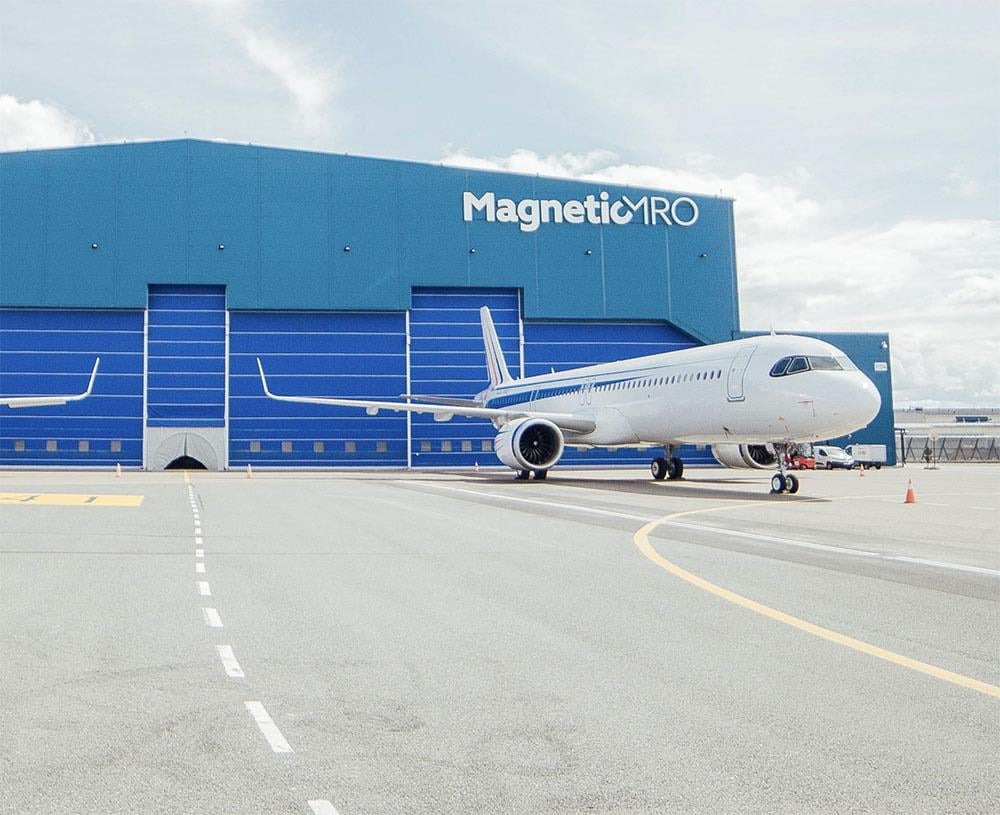
Baltic-based Magnetic Trading is focusing on product line diversification and geographical expansion while closely monitoring the ongoing challenges in the spare parts, component and repair segments.
The company recently opened an office in Miami with a dedicated warehouse and stock to cater to customers in the region. Magnetic Trading’s Kuala Lumpur branch is growing with regional stock in association with local partners. The company also recently received ASA-100 certification from the Aviation Suppliers Association.
Airina Kacienaite-Krake, head of Magnetic Trading, sees no specific differences in how increased costs in the parts supply and repair markets will impact its newer businesses in the U.S. and Malaysia. She says repair costs are increasing; the same applies to components, tied in with a shortage of materials and longer TATs at all repair shops, and almost no market is excluded from that.
Magnetic Trading is currently focused on the best performing product lines. For instance, last year it performed 23 landing gear leg overhauls, five exchanges, six lease projects and over 11 landing gear outright sale deals, valued at $12 million. Kacienaite-Krake says the Airbus A320neo and Boeing 737 MAX landing gear overhaul market is the next big thing.
New product lines are also in the pipeline, including a radome repair and pool program. Magnetic Trading sees ample opportunity, especially during the summer when bird strikes are at their peak and radome requests and repairs increase.
The company raked in more than €42 million ($45 million) in 2023, despite the material shortages and longer turnaround times (TAT) that are still impacting the aftermarket. Many of these issues are exacerbated by insufficient material from teardown activity and workforce shortages that are causing delays at repair shops and other suppliers.
“We have seen a continuous motivation for companies to make use of the secondary parts market, as well as build their own stock,” says Kacienaite-Krake. “We see the same strategy at airlines, too.”
Some traders are highlighting the importance of creating an efficient spot market for spares—for instance, a digital marketplace where parts are traded for immediate delivery, including offering direct access to OEM new inventory, often at the same cost as going directly to the source.
According to Kacienaite-Krake, there are already many well-established platforms for the spare parts aftermarket which are being used by OEMs, themselves. Therefore, she asserts these platforms are likely sufficient unless a customized solution is needed for a customer in other instances.
“All these initiatives are good but not necessarily applicable for wider use or to justify the resources required to build and maintain them,” she asserts. “However, the development of [artificial intelligence] will definitely change this perspective. We already see it simplifying the data collection, among other things.”
Industrywide, demand for parts manufacturer approval (PMA) parts and designated engineering representative (DER) repairs have risen, but Kacienaite-Krake thinks these solutions tend to be more topical for repair shops if airlines give the green light to proceed. “However, we try not to purchase them into our stock,” she notes. “With that said, the increase in them is inevitable due to industry-wide supply chain issues, where sometimes companies don’t have another option but to use PMA parts or DER repairs.”





